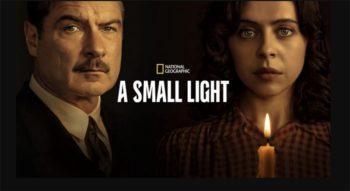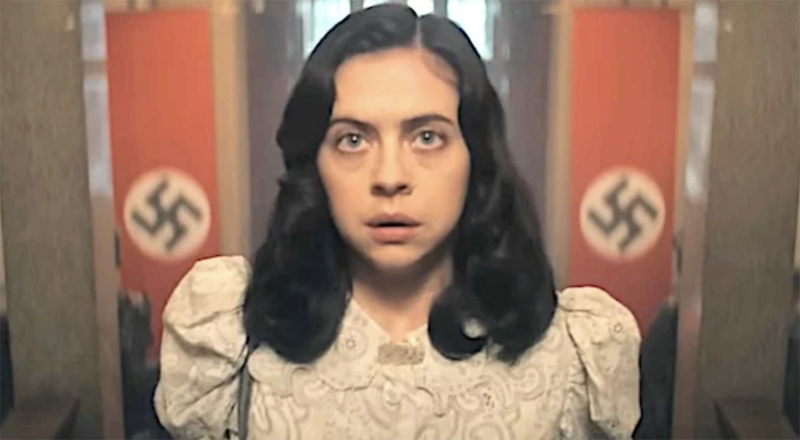By Mark Ellis –
Disney+ is currently running a historical mini-series, A Small Light, about a Dutch woman, Miep Gies, who helped conceal Anne Frank’s family and other Jews in Amsterdam during World War II.
The creators of the series have taken artistic license by turning Gies’ adoptive older brother, Casmir (“Cas”), into a homosexual so they could advance a historical narrative about homosexuals standing against Hitler.
The biographical drama, created by National Geographic, airs on the Disney+ streaming network and Hulu. (Walt Disney Co. recently gained majority ownership of National Geographic, allowing the eight-part series to air on Disney+ the day after the series premiere.)

In an interview, one of the creators justified the invention by rationalizing that since Miep Gies had five adoptive siblings, “statistically, one of them had to be gay” –a questionable claim.
A Gallup poll in 2021 revealed the number Americans identifying as LGBT at 7.1 percent, which is not one in five – 20 percent.
The Diary of a Young Girl, often referred to as The Diary of Anne Frank, is a poignant memoir from the diary kept by a Jewish teenager, Anne Frank, while she and her family were hiding from the Nazis during the Nazi occupation of the Netherlands. Their secret annex was raided by the Gestapo on August 4, 1944 and they were taken into custody at the height of the Holocaust.
Sixteen-year-old Anne Frank died of typhus in the Bergen-Belsen concentration camp in Nazi Germany in 1945. Anne’s sister Margot also perished in the same camp. Anne’s diaries were found by Miep Gies and Bep Voskuijl and given to Anne’s father, Otto Frank, immediately following the war.
Cas was turned into a homosexual by the creators as a way of featuring openly homosexual Willem Arondeus – whose role in the Dutch resistance had not received the attention that it deserved, the creators stated in an interview with Digital Spy.
“You come upon a story like [the Amsterdam gay bar Café ‘t Mandje and Willem Arondéus, and the fact that the first gay bar in Europe was this hotbed of the Resistance…and you’re like, ‘Well, we have to tell that story,'” Tony Phelan told Digital Spy.
“Willem was arrested afterwards and put to death by the Nazis, and he said to his lawyer, ‘Let it be known that homosexuals are not cowards.’ He said this in 1944, and those people were an integral part of that story,” Phelan noted.
In the same interview, Phelan stated that the gay bar and its role with the underground became a fascinating subject to their creative team they wanted to link with the Anne Frank story, even though there was no historical connection.
“One of our responsibilities as storytellers is to say: This (homosexuality) is not a new thing. This has always been there. It has always been a part of pretty much everyone’s family. It just wasn’t talked about as much.”
“So bringing that story into our story felt like the right choice to do. So we took some liberties but hopefully they’re liberties in the pursuit of a bigger desire to immerse the audience in the many different facets of this world,” he said.
One Jewish leader finds their creative liberties objectionable. “When presenting historical stories, it is dishonest and morally wrong to change facts to include progressive propaganda,” Arthur Goldberg, president of the Congregation Mount Sinai of Jersey City Heights synagogue, told World Net Daily.



